This Fox Chase professor participates in the Undergraduate Summer Research Fellowship.
Learn more about Research Volunteering.
Related Articles
00 / 00
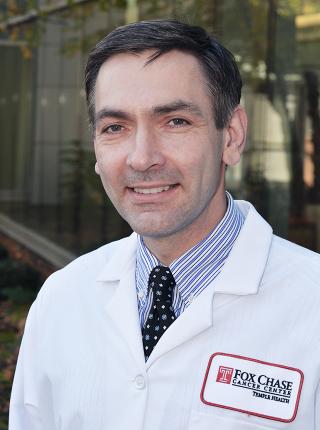
This Fox Chase professor participates in the Undergraduate Summer Research Fellowship.
Learn more about Research Volunteering.
Request an Appointment
Professor, Department of Hematology/Oncology
Inaugural Holder of Paul F. Engstrom Professorship in Oncology
Esophageal Cancer, Pancreatic Cancer, Colorectal Cancer, Neuroendocrine Tumors, Liver, Gall Bladder & Bile Duct Cancer, Stomach (Gastric) Cancer
Gastrointestinal cancers, Neuroendocrine carcinomas
I chose to stay at Fox Chase as an attending physician for the love of the institutional environment and the great patients I am so privileged to treat. I love my work for the great team spirit cultivated among my colleagues, physicians and nurses. I am extremely grateful to the fact that patients are at the center of everybody’s attention. It is easy for me to do my job in such an atmosphere of concern and indefatigable compassion.
Fox Chase also offers me an opportunity to work both in the clinic and in the lab, where I am studying cancer biology with the goal to design better treatment options for the patients. In my field of gastrointestinal malignancies, I am convinced that the treatment choices for each individual cancer patient will soon be defined by the molecular makeup of their cancer cells. This knowledge can help us match the treatment strategies with the biology of individual patient’s tumors. I am interested to translate the knowledge about cancer available in the lab to the clinic by conducting hypothesis-driven clinical trials.
I am deeply convinced that the best way to help our patients is to push the boundaries by doing clinical and basic research.
My lab opened in 2009 endowed with the challenge to define the critical regulators of tumor cell response to drugs targeting EGFR (Astsaturov, Science Signaling, 2010). From this initial task which ultimately led to 2 clinical trials in patients with head and neck and lung cancers, 3 NIH grants and 6 papers, we define a previously overlooked step of C4-demethylation in the enzymatic cascade of cholesterol biosynthesis. Inactivation of SC4MOL or NSDHL involved in the oxidative demethylation at C4 leads to dramatic alteration in the vesicular trafficking of the endocytosed EGFR and sensitizes cancer cells to EGFR inhibitors (Sukhanova et al., Cancer Discovery, 2013).
Following this initial lead, Linara Gabitova took on the challenge to pinpoint the mechanism executing such a dramatic effect of accumulating C4-methylated sterols. She found that LXR alpha was the critical effector triggered by these sterol species, so that activation of LXR can be used to deregulate cholesterol turnover in cancer synergistically with EGFR antagonists in in the KRAS-driven tumors (Cell Reports, 2015).
Dr. Gabitova-Cornell next developed a mouse model of pancreatic cancer to study the role of mevalonate pathway in pancreatic carcinogenesis (Cancer Cell, 2020). She discovered a mechanism by which cholesterol metabolism controls the development and differentiation of pancreatic ductal adenocarcinoma (PDAC). In her novel mouse model, disruption of distal cholesterol biosynthesis by conditional inactivation of the rate limiting enzyme Nsdhl, or treatment with cholesterol-lowering statins switches glandular pancreatic carcinomas to a basal (mesenchymal) phenotype in mouse models driven by KrasG12D expression and homozygous Trp53 loss. Consistently, PDACs in patients receiving statins show enhanced mesenchymal features. Mechanistically, statins and NSDHL loss induce SREBP1 activation, which promotes the expression of Tgfb1 enabling epithelial-mesenchymal transition. Evidence from patient samples in this study suggests activation of TGFβ signaling and epithelial-mesenchymal transition by cholesterol-lowering statins may promote basal type of PDAC conferring poor outcomes in patients.
In an ongoing productive collaboration with a partnering laboratory of Dr. Edna Cukierman, we have begun in-depth analyses of the role cancer-associated fibroblasts (CAFs) in pancreatic cancer. We are currently investigating the role of CAFs in providing tumor cells with essential lipids such as cholesterol and other membrane lipid particles. This project led by a postdoctoral fellow, Dr. Charline Ogier, is aimed to develop new strategies to disrupt CAF-cancer cell interactions. We are looking for metabolic vulnerabilities in the cholesterol pathway as well as developing innovative drug delivery tools to improve lives of the patient with this devastating and thus far recalcitrant cancer.
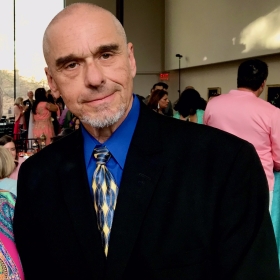
I’ve always had a good appetite, so when I started feeling full after just a few bites of food I knew something was off.
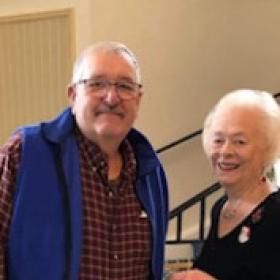
In 2021, I started having pain in my left leg. I visited my family doctor, and at first we thought it might be a deep vein thrombosis. When we ruled that out, I saw a vascular doctor in case it might be varicose veins. That doctor had me get an MRI, and after those results came back, I had to get a biopsy. That’s when the doctors confirmed that I had a stage IV tumor in my leg.
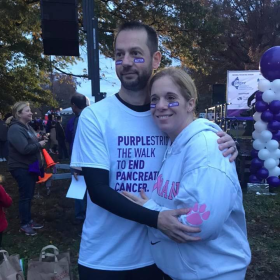
I’m 45 and live in Delran, New Jersey, with my wife and two kids. I work as a vice president of business development for MasterCard, and in my spare time I love to run.
I’ve run marathons and completed an Ironman 70.3 (also known as a Half Ironman), which consists of a 1.2-mile swim, a 56-mile bike ride, and a 13.1-mile run. So, I’m no stranger to pain and discomfort.
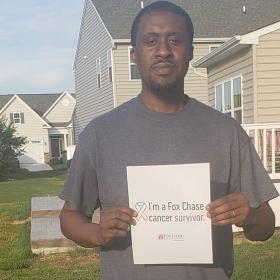
I often share my story and always encourage people who feel something is wrong to go to the doctor to get checked out. If you wait too long, it may be too late. I am thankful that I took that advice.
Cancer Metabolism and signaling
Linara Gabitova-Cortnell, PhD
Andrei Gorin, PhD
Anna Sukhanova, PhD
Eugenia Banina, MD
The following ratings and reviews are based on verified feedback collected from independently administered patient experience surveys. The ratings and comments submitted by patients reflect their own views and opinions. Patient identities are withheld to ensure confidentiality and privacy. Learn more about our Patient Experience Ratings.
Skripova V., Vlasenkova R., Zhou Y., Astsaturov I., Kiyamova R., Identification of new regulators of pancreatic cancer cell sensitivity to oxaliplatin and cisplatin. Molecules. 27(4)2022. PMC8875979 https://www.ncbi.nlm.nih.gov/pubmed/35209078.
Surumbayeva A., Kotliar M., Gabitova-Cornell L., Kartashov A., Peri S., Salomonis N., Barski A., Astsaturov I. Preparation of mouse pancreatic tumor for single-cell rna sequencing and analysis of the data. STAR Protoc. 2(4): 100989, 2021.PMC8649395. https://www.ncbi.nlm.nih.gov/pubmed/34927097.
Gabitova-Cornell, L., Surumbayeva, A., Peri, S, Franco-Barraza, J, Restifo, D, Weitz, N, Ogier, C, Goldman, AR, Hartman, TR, Francescone, R, Tan, YF, Nicolas, E, Shah, N, Handorf, EA, Cai, QK, O’Reilly, AM, Sloma, I, Chiaverelli, R, Moffitt, RA, Khazak, V, Fang, CY, Golemis, EA, Cukierman, E, Astsaturov, I. Cholesterol pathway inhibition induces TGFβ signaling to promote basal differentiation in pancreatic cancer. Cancer Cell. 2020,38(4):p.567-583e11.PMID: 32976774; PMCID: PMC7572882; doi.org/10.1016/j.ccell.2020.08.015. –cover feature article, Editorial Preview; highlighted-Science Signaling, 10 Nov 2020: Vol. 13, Issue 657, DOI: 10.1126/scisignal.abf5642
Francescone, R., Barbosa Vendramini-Costa, D., Franco-Barraza, J., Wagner, J., Muir, A., Lau, A. N., Gabitova, L., Pazina, T., Gupta, S., Luong, T., Rollins, D., Malik, R., Thapa, R. J., Restifo, D., Zhou, Y., Cai, K. Q., Hensley, H. H., Tan, Y., Kruger, W. D., Devarajan, K., Balachandran, S., Klein-Szanto, A. J., Wang, H., El-Deiry, W. S., Vander Heiden, M. G., Peri, S., Campbell, K. S., Astsaturov, I.,Cukierman, E. Cancer Discovery 2020. PubMed PMID: 33127842; PubMed Central PMCID: pending. DOI: 10.1158/2159-8290.CD-20-0775
Sahai E, Astsaturov I, Cukierman E, DeNardo DG, Egeblad M, Evans RM, Fearon D, Greten FR, Hingorani SR, Hunter T, Hynes RO, Jain RK, Janowitz T, Jorgensen C, Kimmelman AC, Kolonin MG, Maki RG, Powers RS, Puré E, Ramirez DC, Scherz-Shouval R, Sherman MH, Stewart S, Tlsty TD, Tuveson DA, Watt FM, Weaver V, Weeraratna AT, Werb Z. A framework for advancing our understanding of cancer-associated fibroblasts. Nat Rev Cancer. 2020 Jan 24;PubMed PMID: 31980749.
Gabitova L, Restifo D, Gorin A, Manocha K, Handorf E, Yang DH, Cai KQ, Klein-Szanto AJ, Cunningham D, Kratz LE, Herman GE, Golemis EA, Astsaturov I. Endogenous Sterol Metabolites Regulate Growth of EGFR/KRAS-Dependent Tumors via LXR. Cell Rep. 2015 Sep 22;12(11):1927-38. doi: 10.1016/j.celrep.2015.08.023. Epub 2015 Sep 3. PubMed; PubMed Central
Sukhanova A, Gorin A, Serebriiskii IG, Gabitova L, Zheng H, Restifo D, Egleston BL, Cunningham D, Bagnyukova T, Liu H, Nikonova A, Adams GP, Zhou Y, Yang DH, Mehra R, Burtness B, Cai KQ, Klein-Szanto A, Kratz LE, Kelley RI, Weiner LM, Herman GE, Golemis EA, Astsaturov I. Targeting C4-demethylating genes in the cholesterol pathway sensitizes cancer cells to EGF receptor inhibitors via increased EGF receptor degradation. Cancer Discov. 2013 Jan;3(1):96-111. doi: 10.1158/2159-8290.CD-12-0031. Epub 2012 Nov 2. PubMed; PubMed Central.
This Fox Chase professor participates in the Undergraduate Summer Research Fellowship.
Learn more about Research Volunteering.
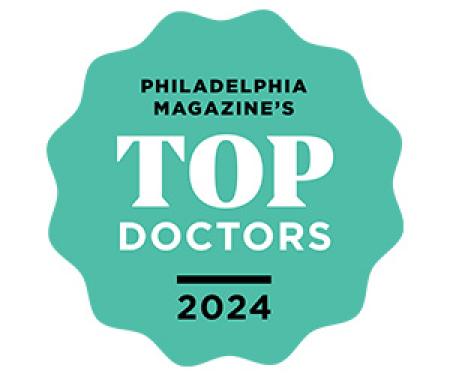
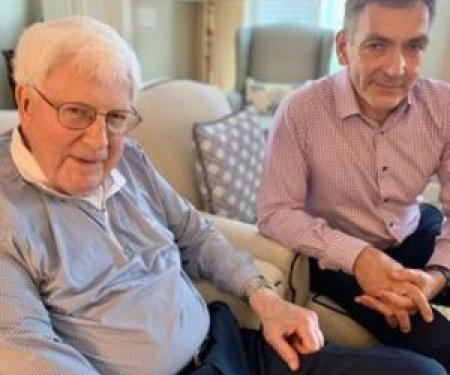
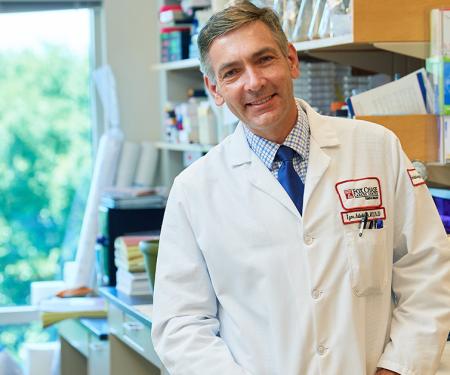
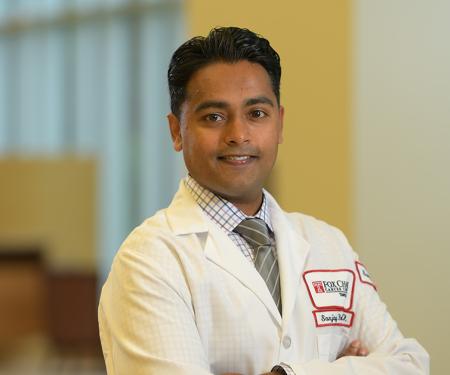
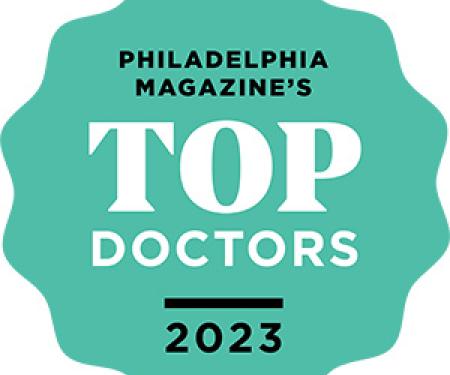
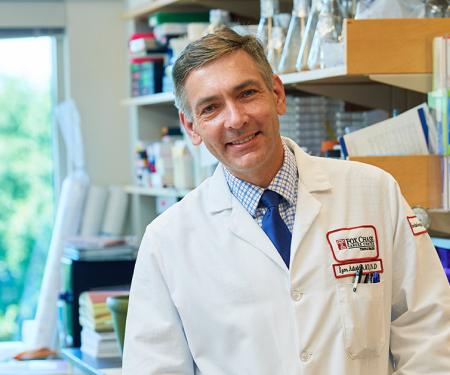
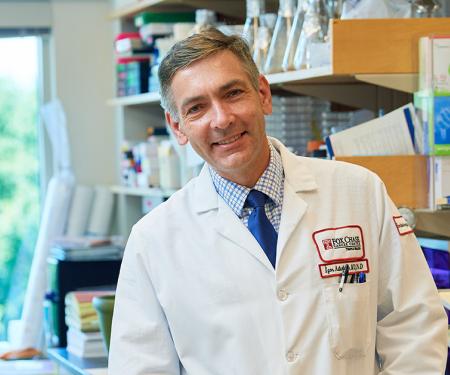
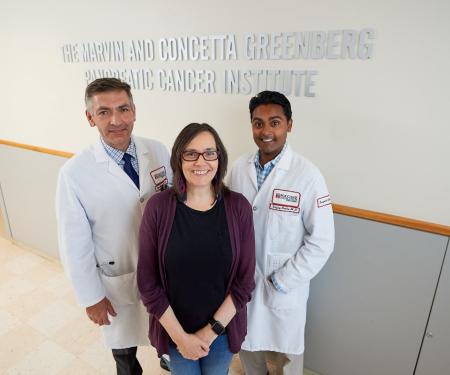
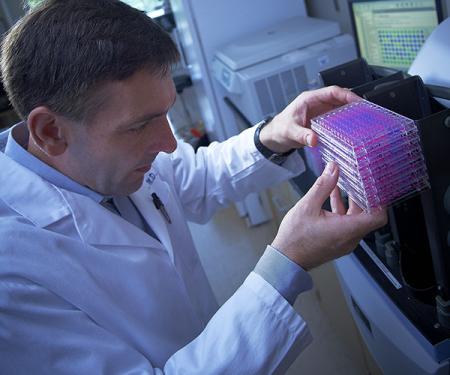
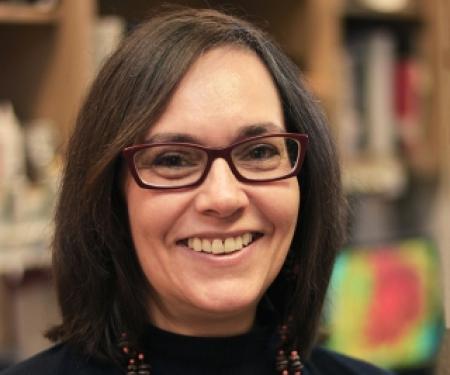
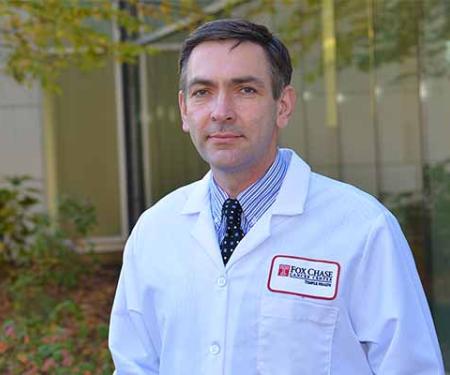
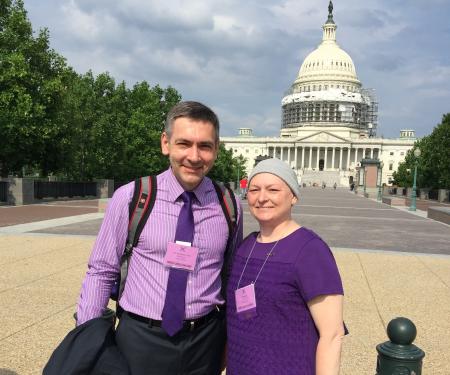
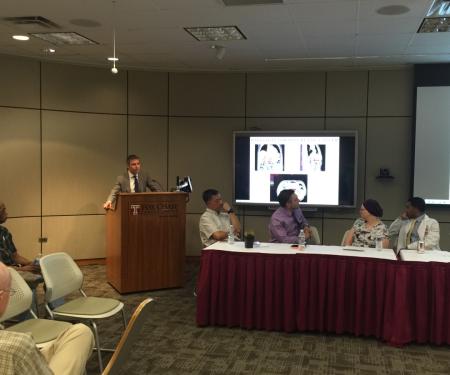
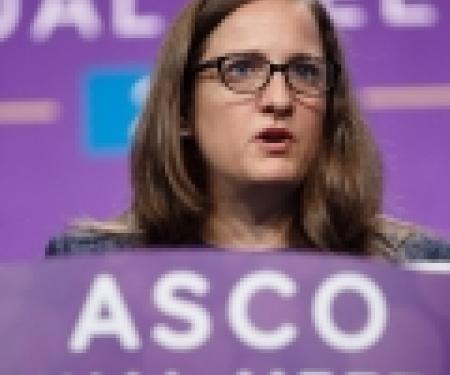
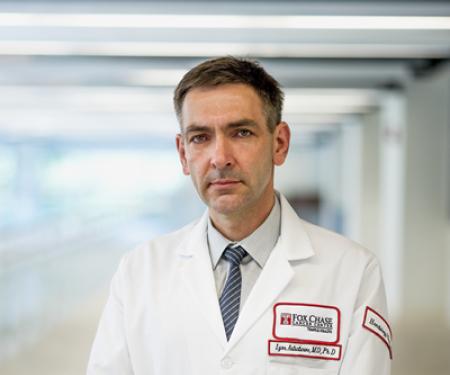
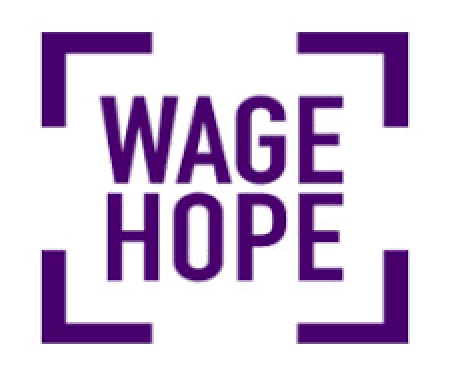
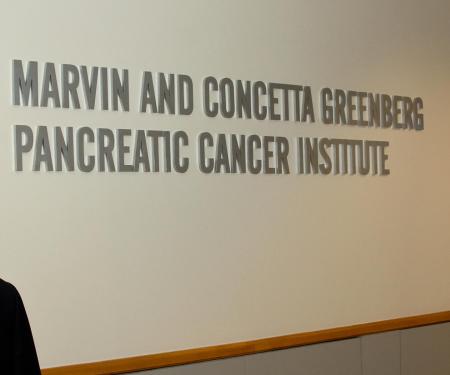
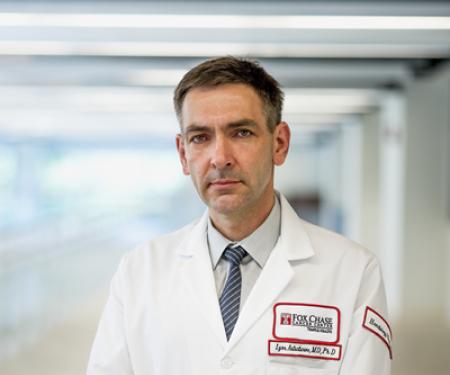
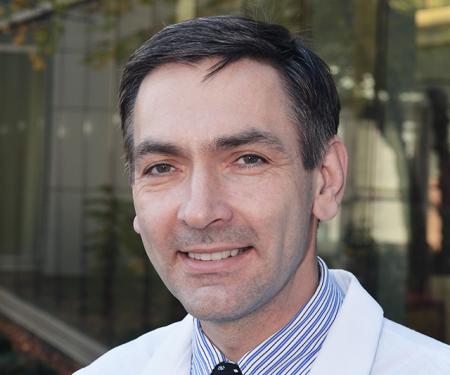
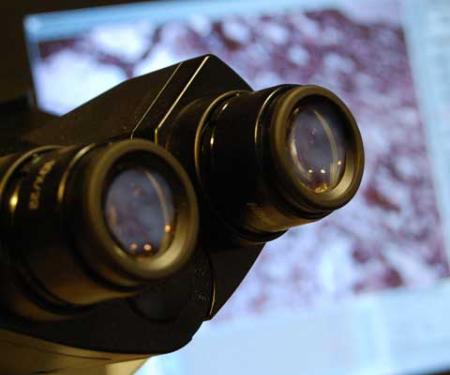
Patient comments
Dr. Igor and his staff are amazing and goes out of their way no matter what. Including pushing me in a wheelchair because of pain in my my left leg.
I felt this Dr spent extra time getting to know me and understand my feelings and health.
100% satisfied that I am receiving the best care possible.
Dr. Igor is a kind and understanding person.
This was my first visit with Dr. Igor as my previous doctor had left Fox Chase Cancer Center. I was very impressed with Dr. Igor and would recommend him to anyone that needed to see an oncologist. He is personable and very thorough in his examination and explanations of any questions asked.